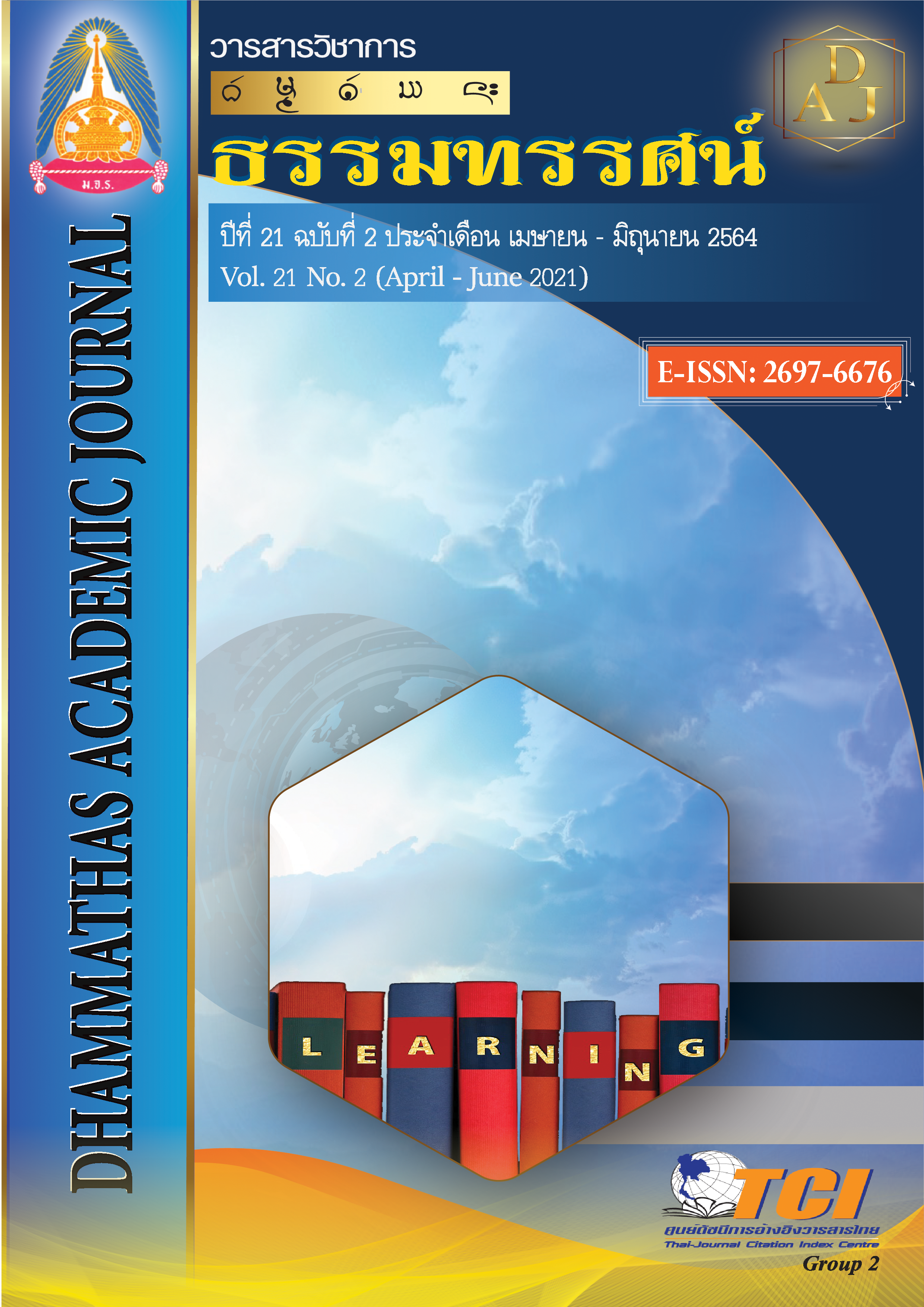Garāvāsa Dhamma: Sustainable Corruption Prevention
Main Article Content
Abstract
This academic article aims to present the principle of living is called "4 lay principles" is the principle of the householder, which has 4 points: 1. Truth is acting with integrity, not corrupt, not deceitful, telling the truth, and being honest in his work duties. Their 2. Thma is self training. And restrained himself from becoming clinged to evil Is greedy to have things that are not their own, anger, delusions, have both mental and intellectual improvements to improve the flaws in their work or actions. 3. Khạnti is patience. Here it means to endure the temptation. To the sensuality that will take over the mind of their own, not to go astray to commit that offense Including things that are not desirable mentally, such as difficulty in work. Curse from others 4. Jaga is this sacrifice, including the reluctance, the relentless emotion of one's heart not clinging to the things that provoke our minds. Sacrifice from happiness and his own interests, including his departure from passion, makes him open-minded. Know how to be generous and ready to face suffering with others.
Article Details
References
พระธรรมปิฎก (ป.อ. ปยุตฺโต). (2543). พระพุทธธรรม. กรุงเทพฯ: มหาจุฬาลงกรณราชวิทยาลัย.
พระสมทบ ถิรปญฺโญ (รุ่งมิตร จรัสแสง). (2554). ภาวะผู้นาของเยาวชนตามหลักฆราวาสธรรม 4: กรณีศึกษาโรงเรียนหล่มสักวิทยาคม จังหวัดเพชรบูรณ์. (วิทยานิพนธ์พุทธศาสตรมหาบัณฑิต). พระนครศรีอยุธยา: มหาวิทยาลัยมหาจุฬาลงกรณราชวิทยาลัย.
พุทธทาสภิกขุ. (2523). ฆราวาสธรรม. กรุงเทพฯ: พระนคร.
สำนักป้องกันการทุจริตภาคประชาสังคม และการพัฒนาเครือข่ายสำนักงาน. (2557). การป้องกันและปราบปรามการทุจริต. กรุงเทพฯ: สำนักป้องกันการทุจริตภาคประชาสังคม.
สำนักงานคณะกรรมการการศึกษาขั้นพื้นฐาน. (2561). คู่มือหลักสูตรต้านทุจริตศึกษา. กรุงเทพฯ: สำนักงานคณะกรรมการการศึกษาขั้นพื้นฐาน.

